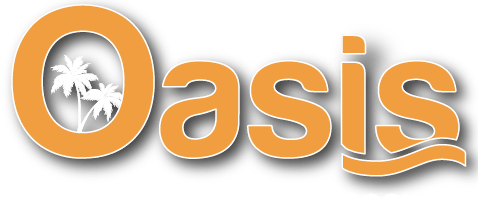Essential Heat Pump Maintenance for Chicago’s Extreme Weather
Chicago’s notorious weather swings, from sub-zero winters to sweltering summers, put tremendous strain on heat pump systems. At Oasis Plumbing, Heating & Cooling, we understand that proper maintenance isn’t just about extending equipment life—it’s about ensuring your home stays comfortable year-round while keeping energy costs under control. Heat pumps offer exceptional efficiency for both heating and cooling, but they require specialized care to maintain peak performance in our challenging climate.
Regular maintenance becomes even more critical when considering Chicago’s unique environmental factors. The city’s proximity to Lake Michigan creates additional humidity challenges, while winter road salt and urban air pollution can accelerate component deterioration. Our technicians have spent over two decades perfecting maintenance protocols specifically designed for these local conditions, ensuring your heat pump operates efficiently regardless of what Mother Nature throws at it.
Understanding Your Heat Pump’s Maintenance Needs
Heat pumps operate differently from traditional furnaces and air conditioners, requiring a unique maintenance approach. These systems work by transferring heat rather than generating it, using refrigerant cycles to move thermal energy between indoor and outdoor environments. This continuous operation means components experience more wear than conventional HVAC systems that cycle on and off seasonally.
The reversing valve, a critical component unique to heat pumps, switches the system between heating and cooling modes. This valve requires regular inspection and lubrication to prevent sticking, which could leave you without heat during a January cold snap or cooling during August’s heat waves. Additionally, the defrost cycle controls need careful calibration to handle Chicago’s frequent freeze-thaw cycles efficiently without wasting energy or causing unnecessary wear.
Seasonal Maintenance Requirements
Spring maintenance prepares your heat pump for Chicago’s humid summers. We begin by thoroughly cleaning the outdoor coil, removing debris accumulated during winter months. Cottonwood seeds, particularly prevalent in northern suburbs like Elmhurst and Addison, can clog coils and drastically reduce efficiency. Our technicians check refrigerant levels, as even small leaks can decrease cooling capacity by up to 20 percent while increasing energy consumption significantly.
Fall maintenance focuses on heating readiness. We inspect and test the auxiliary heat strips, crucial for those polar vortex events when temperatures plummet below the heat pump’s efficient operating range. The defrost timer receives careful attention, as improper settings can cause ice buildup that damages the outdoor unit. We also verify proper airflow through both indoor and outdoor units, as restricted airflow remains the leading cause of premature heat pump failure.
Critical Components Requiring Regular Attention
- Air Filters: Chicago’s air quality varies significantly by neighborhood, affecting filter replacement frequency. Areas near expressways or industrial zones may require monthly changes, while residential areas like Bensenville might allow bi-monthly replacements
- Electrical Connections: Temperature fluctuations cause expansion and contraction that loosens connections over time, potentially creating fire hazards or system failures
- Refrigerant Lines: Insulation degradation from UV exposure and temperature extremes requires annual inspection to prevent efficiency losses
The blower motor and fan assemblies deserve special attention in our maintenance protocols. These components run continuously in heat pump systems, accumulating dust and debris that unbalance fan blades. Even slight imbalances create vibrations that accelerate bearing wear and increase noise levels. Since 1997, we’ve seen how proper cleaning and balancing during routine maintenance can double the lifespan of these expensive components.
Energy Efficiency and Cost Savings Through Maintenance
Well-maintained heat pumps typically achieve coefficient of performance (COP) ratings between 3.0 and 4.0, meaning they produce three to four units of heating or cooling energy for every unit of electricity consumed. However, neglected systems can see COP ratings drop below 2.0, effectively doubling operating costs. In Chicago’s climate, where heating and cooling demands remain high, this efficiency loss translates to hundreds of dollars in unnecessary utility expenses annually.
Our maintenance programs include comprehensive efficiency testing using advanced diagnostic equipment. We measure temperature differentials across coils, check superheat and subcooling values, and verify proper refrigerant charge. These technical measurements reveal developing problems before they cause comfort issues or expensive breakdowns. Many customers report energy savings of 15-25 percent after implementing our recommended maintenance schedules.
Preventing Common Heat Pump Problems
Ice formation on outdoor units represents one of the most frequent issues we encounter during Chicago winters. While heat pumps naturally accumulate frost during heating operation, excessive ice indicates problems with the defrost cycle, low refrigerant, or airflow restrictions. Regular maintenance identifies these issues early, preventing the compressor damage that occurs when units operate with heavy ice accumulation.
Refrigerant leaks pose another significant challenge. Unlike older R-22 systems, modern R-410A heat pumps operate at higher pressures, making leak detection more critical. Our technicians use electronic leak detectors and UV dye testing to identify even tiny leaks that traditional soap bubble tests might miss. Addressing small leaks during routine maintenance prevents the major repairs required when systems lose significant refrigerant charge.
Professional Maintenance Versus DIY Approaches
While homeowners can handle basic tasks like filter replacement and keeping outdoor units clear of debris, professional maintenance remains essential for optimal performance. Heat pumps contain high-voltage electrical components and pressurized refrigerant systems that require specialized training and equipment to service safely. Our certified technicians undergo continuous education on evolving heat pump technologies and EPA regulations governing refrigerant handling.
Professional maintenance also includes warranty protection considerations. Most manufacturers require annual professional service to maintain warranty coverage. We provide detailed service documentation that protects your investment and ensures warranty compliance. Additionally, our maintenance visits often reveal installation issues or design problems that impact system performance, allowing corrections before they cause premature equipment failure.
Customized Maintenance Plans for Every Home
Every home presents unique maintenance challenges based on factors like system age, usage patterns, and environmental conditions. We develop customized maintenance schedules that address your specific needs while maximizing equipment life and efficiency. Serving customers throughout Chicago and the northern suburbs for over 20 years has taught us that one-size-fits-all maintenance programs simply don’t deliver optimal results.
Our comprehensive maintenance agreements include priority service, discounted repairs, and extended warranty options. These programs prove particularly valuable during extreme weather events when service demand peaks. Members receive automatic scheduling reminders and enjoy peace of mind knowing their heat pump will perform reliably when needed most. The small investment in regular maintenance pays tremendous dividends through improved comfort, lower utility bills, and extended equipment life.









